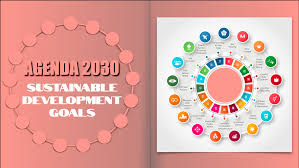AI and Humans: A Collaborative Future
The relationship between artificial intelligence (AI) and humans is an evolving narrative that shapes the present and future of technology, society, and the economy. As AI continues to advance at a rapid pace, understanding its impact on human life is crucial.
The Rise of AI
AI has transitioned from a futuristic concept to a tangible reality, influencing various sectors such as healthcare, finance, education, and entertainment. From virtual assistants like Siri and Alexa to complex algorithms that predict market trends, AI is becoming an integral part of daily life.
Benefits of AI Integration
- Efficiency: AI systems can process vast amounts of data quickly and accurately, enhancing productivity in numerous fields.
- Innovation: By automating routine tasks, AI frees up human creativity for more innovative endeavors.
- Personalization: AI-driven applications offer personalized experiences in areas like shopping and online content consumption.
The Human Element
Despite its capabilities, AI lacks the emotional intelligence and ethical reasoning inherent to humans. This highlights the importance of collaboration between humans and machines. Humans provide context, empathy, and moral judgment that machines cannot replicate.
The Role of Ethics
The integration of AI into society raises ethical concerns about privacy, security, and bias. Ensuring that AI systems are developed responsibly requires input from diverse stakeholders including ethicists, technologists, policymakers, and the public.
A Collaborative Future
The future lies in leveraging the strengths of both humans and AI. By working together, they can solve complex problems more effectively than either could alone. This collaborative approach promises advancements in areas such as medical research where AI can analyze data at unprecedented speeds while human doctors provide compassionate care.
Education and Workforce Development
Preparing for this future involves rethinking education systems to equip individuals with skills needed in an AI-enhanced world. Emphasizing critical thinking, creativity, and emotional intelligence will be key to thriving alongside intelligent machines.
Conclusion
The synergy between humans and artificial intelligence holds immense potential for progress across various domains. By fostering a balanced partnership rooted in mutual strengths—human intuition paired with machine precision—we can navigate the challenges ahead while maximizing opportunities for innovation.
The journey towards integrating AI into everyday life is just beginning; how we choose to shape this relationship will define our collective future.
7 Benefits of AI and Human Collaboration: Boosting Efficiency, Innovation, and Decision-Making
- Enhanced efficiency in tasks through automation
- Improved accuracy and precision in data analysis
- Increased productivity by handling repetitive tasks
- Facilitation of personalized user experiences
- Acceleration of innovation and technological advancements
- Augmentation of human capabilities for better decision-making
- Potential for breakthroughs in complex problem-solving
Challenges of AI: Job Displacement, Ethical Dilemmas, and Privacy Concerns
Enhanced efficiency in tasks through automation
The integration of AI and human capabilities has led to enhanced efficiency in tasks through automation, revolutionizing how industries operate. By automating repetitive and time-consuming processes, AI allows humans to focus on more strategic and creative aspects of their work. This collaboration not only speeds up production but also reduces the likelihood of errors, leading to higher quality outcomes. In sectors such as manufacturing, AI-driven machines can perform precision tasks around the clock without fatigue, while in data analysis, AI algorithms can sift through vast datasets swiftly to uncover insights that would take humans much longer to identify. Ultimately, this synergy between AI and human effort optimizes productivity and drives innovation across various fields.
Improved accuracy and precision in data analysis
The collaboration between artificial intelligence (AI) and humans brings about a significant benefit in the form of improved accuracy and precision in data analysis. AI’s ability to process vast amounts of data quickly and efficiently, coupled with human oversight and interpretation, results in more reliable insights and informed decision-making. By leveraging AI’s computational power for complex calculations and pattern recognition, while incorporating human expertise to contextualize findings and ensure ethical considerations, organizations can achieve a higher level of accuracy in data analysis that drives innovation and strategic outcomes.
Increased productivity by handling repetitive tasks
AI’s ability to handle repetitive tasks significantly boosts productivity across various industries. By automating routine processes, AI allows human workers to focus on more complex and creative aspects of their jobs. For example, in the manufacturing sector, AI-powered robots can perform repetitive assembly line tasks with precision and speed, reducing errors and increasing output. In the office environment, AI can manage data entry and scheduling, freeing employees to concentrate on strategic planning and decision-making. This division of labor not only enhances efficiency but also leads to greater job satisfaction as individuals engage in more meaningful work. As a result, businesses can achieve higher productivity levels while fostering innovation and employee growth.
Facilitation of personalized user experiences
Artificial intelligence significantly enhances personalized user experiences by analyzing vast amounts of data to understand individual preferences and behaviors. This capability allows AI systems to tailor recommendations, content, and services uniquely suited to each user. For example, streaming platforms leverage AI algorithms to suggest movies or music based on previous viewing or listening habits, creating a more engaging and relevant experience. Similarly, e-commerce websites use AI to recommend products that align with a shopper’s past purchases and browsing history. By facilitating these personalized interactions, AI not only improves user satisfaction but also builds stronger connections between consumers and brands. This synergy between human preferences and AI-driven insights leads to a more intuitive and enjoyable user journey across various digital platforms.
Acceleration of innovation and technological advancements
The collaboration between AI and humans significantly accelerates innovation and technological advancements, driving progress across multiple industries. AI’s ability to process vast amounts of data rapidly and identify patterns that might be missed by humans allows for more efficient research and development processes. This synergy enables quicker iterations and refinements in product design, leading to groundbreaking innovations in fields such as healthcare, where AI assists in drug discovery, and engineering, where it optimizes complex systems. By augmenting human creativity with machine precision, this partnership not only speeds up the pace of innovation but also expands the boundaries of what is possible, fostering a future where technological advancements can address global challenges more effectively.
Augmentation of human capabilities for better decision-making
AI’s ability to augment human capabilities significantly enhances decision-making processes across various fields. By analyzing vast datasets quickly and identifying patterns that might be missed by the human eye, AI provides valuable insights that inform more accurate and effective decisions. In healthcare, for example, AI can assist doctors by suggesting potential diagnoses based on historical data and recent research, allowing medical professionals to make more informed choices regarding patient care. Similarly, in business, AI tools can forecast market trends and consumer behavior with high precision, enabling companies to strategize effectively and gain a competitive edge. This symbiotic relationship between human intuition and AI-driven analytics empowers individuals and organizations to tackle complex challenges with greater confidence and efficiency.
Potential for breakthroughs in complex problem-solving
The collaboration between AI and humans holds immense potential for breakthroughs in complex problem-solving. AI’s ability to process vast amounts of data at incredible speeds complements human creativity and intuition, enabling the two to tackle challenges that were previously insurmountable. For instance, in fields like healthcare, AI can analyze medical data to identify patterns and predict outcomes, while human doctors apply their expertise and empathy to develop personalized treatment plans. In scientific research, AI can simulate thousands of experiments in a fraction of the time it would take humans alone, allowing researchers to focus on interpreting results and exploring innovative solutions. This synergy not only accelerates the pace of discovery but also opens new avenues for addressing global issues such as climate change, disease prevention, and sustainable development.
Job Displacement
AI automation presents a significant challenge in the form of job displacement, particularly in industries where routine tasks can be easily automated. As machines and algorithms take over roles traditionally performed by humans, there is a risk of widespread job losses that could impact livelihoods and exacerbate economic disparities. This shift may disproportionately affect workers in sectors such as manufacturing, retail, and transportation, where repetitive tasks are prevalent. The resulting unemployment could lead to increased economic inequality and social unrest if not addressed through proactive measures such as reskilling programs and policy interventions aimed at creating new opportunities for displaced workers. Balancing the benefits of AI with its potential to disrupt the workforce is essential to ensuring a fair and inclusive economy.
Ethical Dilemmas
AI algorithms, while powerful tools for decision-making, can inadvertently perpetuate biases and discrimination if not carefully managed. These algorithms often learn from historical data, which may contain existing prejudices and inequalities. As a result, AI systems can reinforce these biases, leading to unfair outcomes in areas such as hiring practices, law enforcement, and lending decisions. This raises significant ethical dilemmas regarding fairness and accountability. Ensuring that AI systems make equitable decisions requires ongoing scrutiny and intervention by developers and policymakers to identify and mitigate bias within the data and algorithms. Without such measures, there is a risk that AI could exacerbate social inequalities rather than alleviate them, highlighting the need for transparent and responsible AI development practices.
Privacy Concerns
The widespread use of AI technologies has intensified concerns about privacy, as these systems often rely on vast amounts of personal data to function effectively. This data is frequently collected and analyzed without explicit consent from individuals, raising significant ethical and legal questions. The ability of AI to process and interpret large datasets means that personal information can be used in ways that individuals may not anticipate or approve of, potentially leading to unauthorized profiling or surveillance. As AI continues to permeate various aspects of daily life, ensuring robust data privacy and security measures becomes increasingly critical to protect individuals’ rights and maintain public trust in these technologies.



